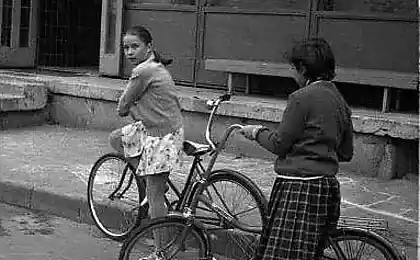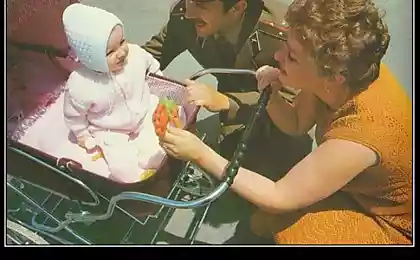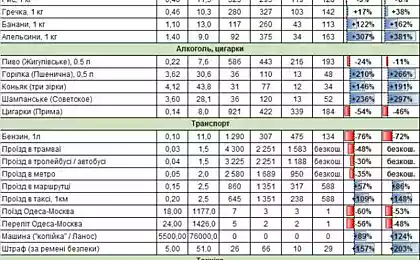304
Inviolable foundations of Soviet life, which only pull a person into poverty
The poverty of people in the USSR forced to use ingenuity and ingenuity to somehow decorate their lives and diversify the home menu. It was especially difficult for most Soviet women, because salaries were small, and shops did not differ in a rich assortment of goods.
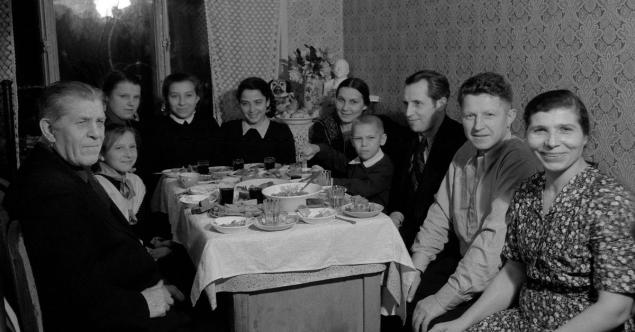
Soviet citizens at the genetic level formed the ability to do everything from nothing with their own hands. This ability seems to be inherited. But some strange habits young generations are successfully getting rid of. Although poverty sometimes makes people remember old skills and apply them in everyday life.
We do not abandon the desire to fix anything in the house with our own hands, starting with the socket and ending with the refrigerator. Therefore, the masters are called only when they themselves have not coped with the problem. Repairs in the apartment owners also usually do completely or partially on their own. Only a select few hire specialists and entrust all the work to professionals.

Car owners also observe traditions and try to first "look" under the hood on their own. If they did not succeed, then they did.
Modern youth goes to the country to relax and fry kebab. And Soviet people were motivated by poverty to get a summer cottage to work in the garden and garden. But then they had relatively inexpensive fresh vegetables and fruits on the dining table.
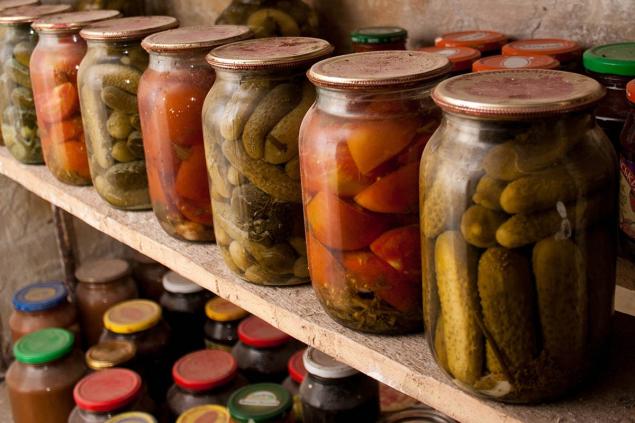
Our citizens have preserved the Soviet habit of conserving and stockpiling for the winter. In a private house for potatoes, carrots, cabbage and onions there is a cellar, and apartment owners drag everything into the basement, storage room or onto the balcony. To save on food, people turn the loggia from a recreation area into a place to store food.
Now housewives rarely keep huge pots in the house. And in Soviet times, they were often used to boil bedding. There were no washing machines that could be washed at high temperatures. At that time, women needed to work hard to return the sheets to their former freshness and whiteness.
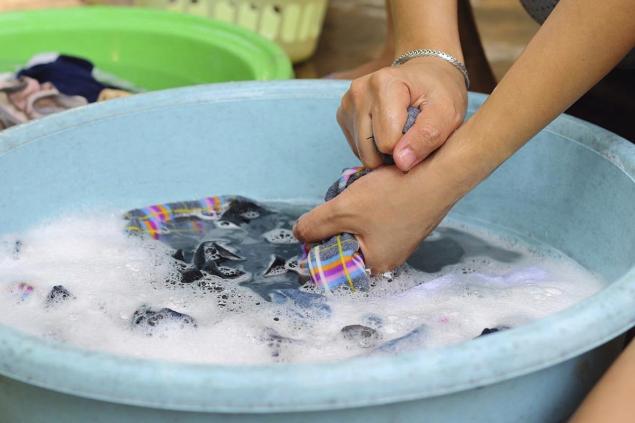
We are sorry to take out old things that may still be useful. The closet and balcony are usually littered with all sorts of junk, which is long overdue to throw away, but "the hand does not rise." And the closets are full of sweaters and jackets that nobody wears. But from old experience, we keep everything with the hope that someone might need it. Buying new clothes was problematic.
The old thing was restored: battered sleeves or pockets were updated with original inserts and linings, and large sizes were shortened and sewn. The younger children had to wear clothes behind the older ones.
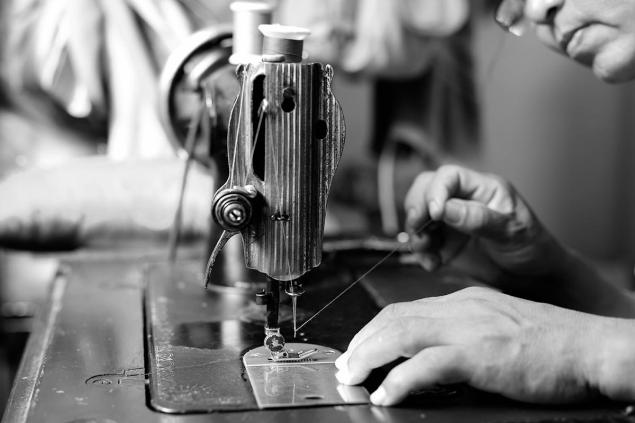
Servants were fashionable to fill with beautiful and expensive dishes, which were never used or put on the table on very solemn occasions. The presence of crystal and porcelain behind the glass in the apartment testified to the prosperity of the family.
When guests were expected in the house, the owners prepared in advance, and in the kitchen the work was boiling for a couple of days. The hostess set the table so generously that then the household for a few days finished the cutlets and salad "Olivier".
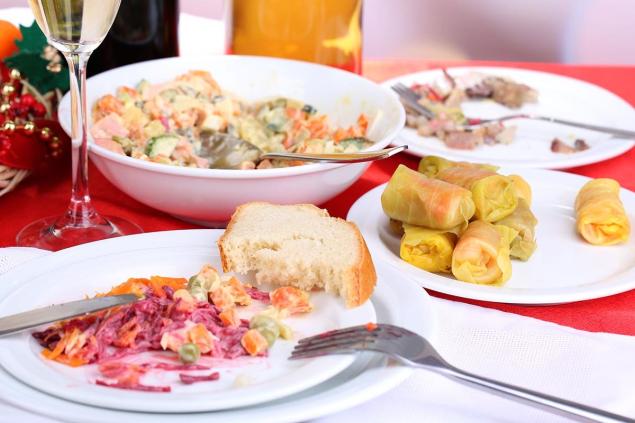
The younger generation lives in the present day and does not collect dust on cups, but uses them daily. When there is a reason to invite a large number of guests, then close people are invited to a cafe or restaurant. Often friends meet at home, but at the stove for a long time no one is worth it: at any time you can order ready-made food with delivery.
There is a saying that poverty is not a vice. Smart people will always figure out how to find a way out of a difficult situation.
Photo at preview and in article

Soviet citizens at the genetic level formed the ability to do everything from nothing with their own hands. This ability seems to be inherited. But some strange habits young generations are successfully getting rid of. Although poverty sometimes makes people remember old skills and apply them in everyday life.
We do not abandon the desire to fix anything in the house with our own hands, starting with the socket and ending with the refrigerator. Therefore, the masters are called only when they themselves have not coped with the problem. Repairs in the apartment owners also usually do completely or partially on their own. Only a select few hire specialists and entrust all the work to professionals.

Car owners also observe traditions and try to first "look" under the hood on their own. If they did not succeed, then they did.
Modern youth goes to the country to relax and fry kebab. And Soviet people were motivated by poverty to get a summer cottage to work in the garden and garden. But then they had relatively inexpensive fresh vegetables and fruits on the dining table.

Our citizens have preserved the Soviet habit of conserving and stockpiling for the winter. In a private house for potatoes, carrots, cabbage and onions there is a cellar, and apartment owners drag everything into the basement, storage room or onto the balcony. To save on food, people turn the loggia from a recreation area into a place to store food.
Now housewives rarely keep huge pots in the house. And in Soviet times, they were often used to boil bedding. There were no washing machines that could be washed at high temperatures. At that time, women needed to work hard to return the sheets to their former freshness and whiteness.

We are sorry to take out old things that may still be useful. The closet and balcony are usually littered with all sorts of junk, which is long overdue to throw away, but "the hand does not rise." And the closets are full of sweaters and jackets that nobody wears. But from old experience, we keep everything with the hope that someone might need it. Buying new clothes was problematic.
The old thing was restored: battered sleeves or pockets were updated with original inserts and linings, and large sizes were shortened and sewn. The younger children had to wear clothes behind the older ones.

Servants were fashionable to fill with beautiful and expensive dishes, which were never used or put on the table on very solemn occasions. The presence of crystal and porcelain behind the glass in the apartment testified to the prosperity of the family.
When guests were expected in the house, the owners prepared in advance, and in the kitchen the work was boiling for a couple of days. The hostess set the table so generously that then the household for a few days finished the cutlets and salad "Olivier".

The younger generation lives in the present day and does not collect dust on cups, but uses them daily. When there is a reason to invite a large number of guests, then close people are invited to a cafe or restaurant. Often friends meet at home, but at the stove for a long time no one is worth it: at any time you can order ready-made food with delivery.
There is a saying that poverty is not a vice. Smart people will always figure out how to find a way out of a difficult situation.
Photo at preview and in article
Clairvoyant Valery Shatilovich gave a prophecy that everyone discusses, the outcome is clear.
My mother-in-law came to us and said that she would live with us, I do not understand why I should tolerate her when she has her own daughters.




